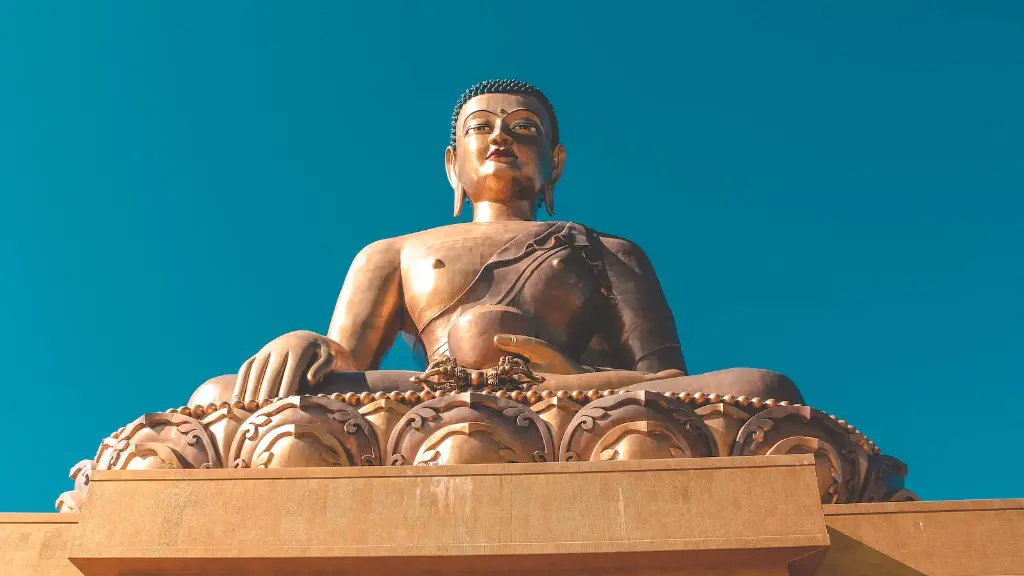Is Roman Catholicism Part of Christianity?
The answer is quite complex, but its best to start off with a simple explanation. Roman Catholicism is a branch of Christianity. Catholicism follows the teachings of Jesus Christ as recorded in the New Testament and practiced by the early Church Fathers. Roman Catholics trace their spiritual heritage back to St. Peter, an apostle appointed by Jesus Christ himself. In the New Testament, Jesus commands Peter to be the “rock” upon which he builds his church (Matthew 16:18).
Today, the Catholic Church is the largest Christian denomination. It is comprised of more than 1 billion followers, or nearly a third of all Christians. The Catholic Church is a hierarchical system led by the Pope in Rome, the Supreme Head of all Catholics. This system consists of bishops, priests, and nuns, who are organized into dioceses. There are more than 200 dioceses in the world.
So, why is there a debate as to whether Roman Catholicism is part of Christianity or a separate religion? The answer can be traced to three major differences: theology, structure, and practices. Historically, Catholic theology was very different from that of Calvinism and Lutheranism, two major Protestant denominations. As a result, the Catholic Church was viewed by many Protestants as a separate religion.
The structure of the Catholic Church is also considerably different from that of other Christian denominations. Catholicism is a hierarchical system, with the pope at the top and bishops and priests below. Other denominations, such as Baptists and Methodists, have a much flatter system, with local pastors and elders ruling the church on a more informal basis.
Finally, while Catholics and other Christians share the same Bible and spiritual basics, Catholics have added practices that other Christians do not follow. This includes the veneration of saints, as well as the belief in transubstantiation, that is, the transformation of the communion bread and wine into the body and blood of Christ. Catholics also observe specific feast and fast days, as well as confess their sins to priests.
Despite their differences, Roman Catholics and other Christians do share many of the same beliefs. They both believe in the Father, Son, and Holy Spirit; they both believe that Jesus died on the cross for the forgiveness of sins, and that salvation is attainable through faith in Jesus. Catholics and Protestants also have many traditions in common, such as baptism, communion, and marriage, although there are differences in the exact way these rites are practiced.
Theological Perspectives
The Catholic Church teaches that it is uniquely responsible for preserving and continuing the teachings of Jesus Christ and that it alone holds the keys to salvation. Catholics are taught that Jesus founded the Church and appointed the office of the pope as visible head. This perspective is viewed as both exclusive and authoritative and is in contrast to Protestant beliefs, which adhere to the principle of sola scriptura, or “Scripture alone”.
In addition, the Catholic Church affirms the existence of purgatory, a place where the sins of Christians are forgiven before they can enter heaven. Most Protestant denominations reject this teaching, believing instead that all sins are forgiven immediately upon death and that one’s destiny is already determined at the time of death.
The Catholic Church also has teachings on morality that are quite different from those of other Christian denominations. Catholics are taught to confess their sins to a priest, who then gives them absolution. They are taught to observe certain religious feasts and fasts, and also to observe various rituals, such as the veneration of saints and the adoration of the Virgin Mary. Such practices are not generally accepted by other denominations.
Political Perspectives
The Catholic Church has long been involved in politics. It has a long history of involvement in courts and governments, and its influence on governments has been particularly strong in Europe, where it has been a powerful political force for centuries.
The Catholic Church has also been at the forefront of many social and political movements. This includes movements to end poverty, racism, and injustice, as well as movements to protect the environment and promote human rights. In addition, it has been a vocal advocate for peace and security, as well as nuclear disarmament.
However, the Catholic Church has also been accused of being a political force aimed at maintaining the rule of the Church and the status quo. Some have argued that the Church’s emphasis on unity and hierarchy may be more a means of political control than a basis of faith. Others have accused the Church of attempting to shape public opinion in order to advance its own agenda.
Socio-Cultural Perspectives
Catholics view their faith as a way of life, and their culture is highly influenced by their faith. They often practice strict adherence to Church teachings, join Catholic organizations and communities, and dress modestly. Catholics also generally have a unified set of values, such as the importance of family, respect for the elderly, and charity for the poor.
At the same time, there are many cultural variations among Catholics. African Catholics, for example, may practice certain African traditional religions in addition to Catholicism. Even within the same nationality, cultural differences can exist, such as between Hispanic Catholics in the United States and in Latin America.
Catholics also differ in how they practice their faith. While some may adhere strictly to Catholic teachings, others may be more flexible and tolerant of diversity. Some Catholics may be involved in social justice movements, while others may focus more on the spiritual aspects of their faith.
Conclusion
To conclude, there is no straightforward answer to the question “Is Roman Catholicism part of Christianity?” Ecumenical dialogue between Catholics and other Christians is ongoing, and Catholics and other Christians are working together to identify common ground and channels for mutual understanding. As we continue to engage in this dialogue, we can be hopeful that the relationship between Catholics and other Christians will continue to deepen and strengthen.


